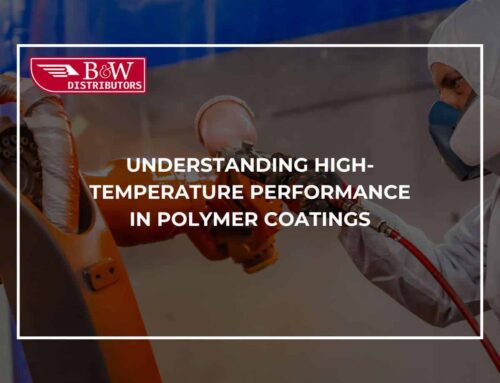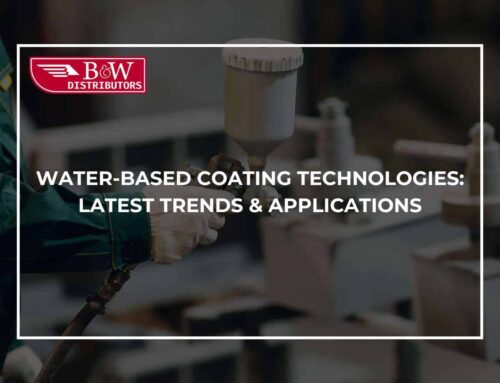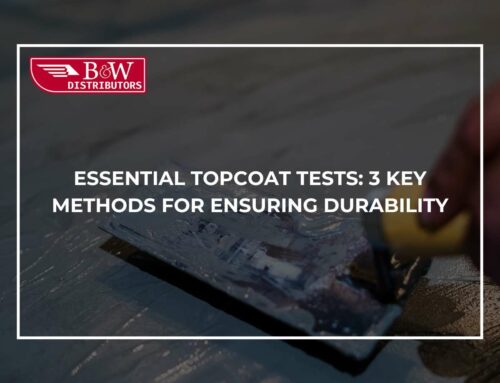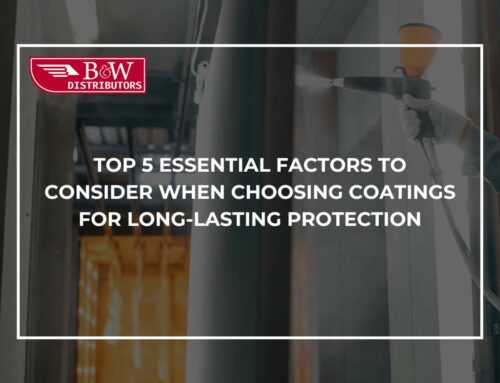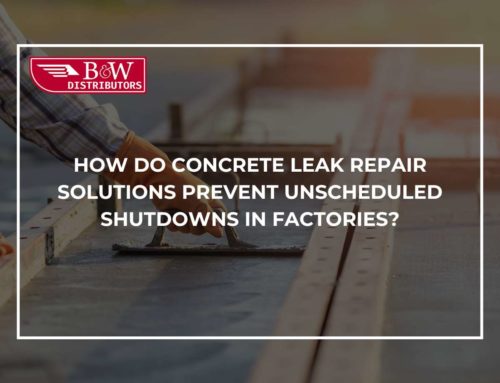Epoxy Coatings vs. Polyurethane Coatings: Which One Should You Choose?
Key Differences Between Epoxy & Polyurethane Coatings For Industrial Surfaces
When it comes to protecting industrial surfaces, choosing the right coating system is crucial to ensure the longevity and durability of your assets. Both epoxy coatings and polyurethane coatings are popular choices in industrial facilities for their unique advantages. However, understanding the differences between the two can help you make the best decision for your specific needs.
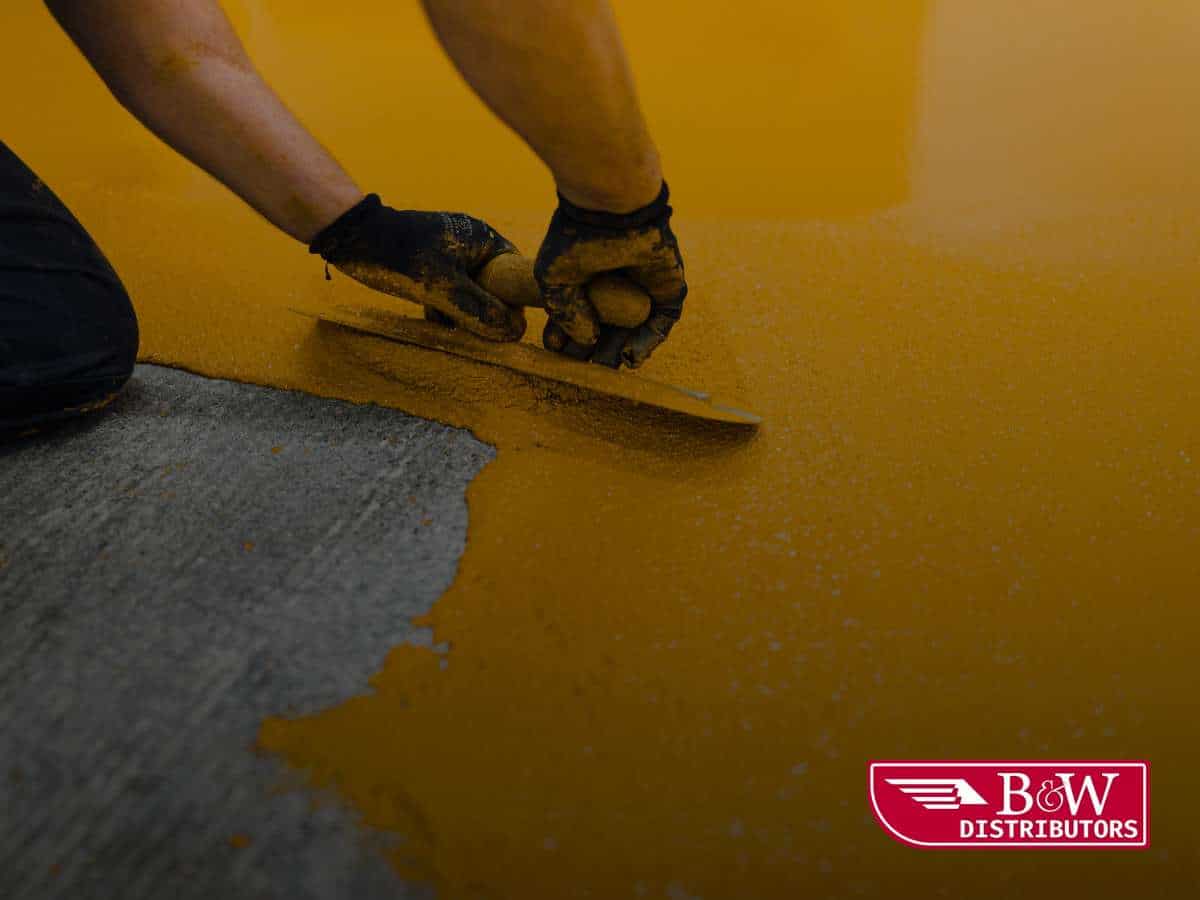
What Are Epoxy Coatings?
Epoxy coatings are a type of polymer that, when mixed with a hardener, create a strong, durable bond with the surface they are applied to. Epoxies are known for their excellent adhesion, resistance to chemicals, and high impact tolerance, making them ideal for industrial environments. These coatings are often used for concrete floors, steel, and tanks, offering protection against abrasions, chemicals, and harsh environmental conditions.
For businesses in the U.S. Southwest seeking a trusted industrial coatings distributor, epoxy coatings offer durable, high-performance protection for demanding applications
Types Of Epoxy Coatings
The main types of epoxy coatings are:
- 100% Solids Epoxy: This type of epoxy is ideal for applications that require durability and chemical resistance. With no volatile organic compounds (VOCs), 100% solid epoxies are environmentally friendly and provide a high level of performance. However, they have a short pot life, so careful application is required.
- High Solids Epoxies: High solids epoxies are perfect for steel, concrete, and galvanized surfaces. They offer excellent protection against acids and alkalis, making them suitable for facilities that deal with harsh chemicals. They also cure quickly, which makes them a good option for warmer climates or areas that need fast application and turnaround.
- Cycloaliphatic & Novolac Epoxies: These are high-performance epoxies used in areas exposed to aggressive chemicals. Novolac epoxies are especially effective in handling strong acids, making them a reliable choice for internal tank linings and secondary containment applications.
What Are Polyurethane Coatings?
Polyurethane coatings are known for their outstanding UV resistance, gloss retention, and color stability. While they may not offer the same level of chemical resistance as epoxies in some cases, polyurethanes excel in protecting surfaces exposed to UV light, weathering, and general wear and tear. Often used as a topcoat, these coatings provide a durable, long-lasting finish that enhances industrial surfaces.
Types Of Polyurethane Coatings
Discover the different types of polyurethane coatings:
- Moisture-Cured Urethanes: Moisture-cured urethanes are ideal for outdoor applications where humidity and moisture levels fluctuate. These one-component coatings are particularly effective in high-dry environments and offer excellent durability. However, they can be sensitive to humidity, so timing their application is crucial.
- Acrylic Polyurethanes: Acrylic polyurethanes are highly resistant to UV rays, making them perfect for outdoor applications or for steel surfaces exposed to the elements. Their exceptional gloss retention ensures that surfaces maintain a polished, clean look for extended periods.
- Polyester Polyurethanes: Known for their remarkable abrasion and scratch resistance, polyester polyurethanes are suitable for high-traffic areas and surfaces exposed to chemical stress. These coatings are often used on aircraft hangars, service bays, and other industrial facilities that require robust protection against wear and tear.
Differences For Industrial Applications
While both epoxy and polyurethane coatings offer valuable benefits, their differences make them more suited for specific applications.
Durability
Epoxy coatings offer superior chemical resistance to acids, alkalis, and solvents but can fade under UV exposure. In contrast, polyurethane coatings maintain their color and durability, even in harsh sunlight.
Application Environment
Epoxy coatings are typically used in controlled environments, such as indoor industrial facilities or tanks that need to withstand harsh chemicals. Polyurethanes, however, are more versatile in outdoor environments due to their resistance to UV degradation and weathering.
Curing Time & Flexibility
Epoxy coatings cure quickly in controlled environments but require precise application and longer recoat windows. Moisture-cured polyurethane coatings, however, adapt to varying humidity levels, making them more versatile for different environments.
Chemical Resistance
While epoxies offer superior chemical resistance, especially in tank linings and containment areas, polyurethanes generally outperform epoxies in applications exposed to oils, greases, and chemicals with high abrasion potential.
When To Choose Epoxy Coatings
Epoxy coatings are ideal when you need a strong, long-lasting protective layer that offers superior resistance to chemicals and corrosion. Here are some specific scenarios where epoxy coatings are the best option:
Pipeline Protection
If your facility handles pipelines that are exposed to corrosion or harsh chemicals, epoxy coatings are an excellent choice. They provide a durable, corrosion-resistant barrier that withstands constant exposure to aggressive substances. As a provider of pipeline coating and repair services, we offer specialized epoxy coatings to ensure the longevity and integrity of your infrastructure, even in the harshest environments.
Concrete Repairs
Epoxies provide excellent adhesion to concrete surfaces, making them the go-to choice for repairing and sealing concrete floors, walls, and tanks. Their high impact resistance ensures the coating stays intact, even in high-traffic or heavy-use areas.
Harsh Chemical Environments
For facilities that handle corrosive substances like acids or alkalis, epoxies provide unmatched protection. These coatings resist chemical wear and tear, extending the lifespan of your infrastructure.
Heavy-Duty Equipment Protection
Equipment exposed to high wear, heavy impacts, and chemicals, such as industrial machinery or storage tanks, benefits from the strength and durability of epoxy coatings.
When to Choose Polyurethane Coatings
Polyurethane coatings, with their excellent UV stability and scratch resistance, are perfect for applications that require enhanced aesthetics and protection against outdoor elements. Here are specific instances where polyurethane coatings are ideal:
UV Exposure
If your surfaces are exposed to prolonged sunlight or UV rays, polyurethane coatings are a must. They offer superior protection against UV degradation, ensuring that your surfaces maintain their appearance and function over time.
Outdoor Environments
Polyurethanes excel in outdoor conditions where weathering and exposure to the elements are constant. Whether it’s steel beams or concrete floors, polyurethane coatings provide robust protection from the elements.
Aesthetic Finish
For facilities where visual appeal is crucial, polyurethanes offer exceptional gloss retention and color stability. Surfaces treated with polyurethane coatings maintain their polished, clean look for much longer than those coated with epoxy.
High-Traffic Areas
If your surfaces experience frequent abrasion, such as in warehouses, service bays, or factories, polyurethane coatings will offer protection against scratches and wear.
How To Make The Right Choice
Choosing between epoxy coatings and polyurethane coatings depends on several factors, including the type of surfaces you need to protect, the exposure conditions, and the required durability. Here are some key factors to consider when making your choice:
Environmental Exposure
If your surfaces are exposed to harsh chemicals, moisture, or extreme conditions, epoxy coatings will likely offer superior protection. Conversely, for outdoor applications where UV exposure is a concern, polyurethane coatings may be the better option.
Durability Needs
Epoxy coatings are ideal for environments where long-term chemical resistance is crucial. If surface appearance and UV resistance are more important, polyurethanes provide the durability and aesthetics you need.
Curing Time
If you need a fast-curing solution, epoxies are often the better choice. Polyurethanes, especially moisture-cured versions, can be applied in a broader range of conditions, offering greater flexibility.
Aesthetics
For surfaces where visual appeal is important, polyurethane coatings excel in maintaining gloss and color, even in harsh environments. Epoxy coatings, while functional, may not retain their color as well when exposed to UV light.
Consulting with an experienced industrial coating supplier can help ensure you select the best coating for your specific needs. A professional will evaluate the unique requirements of your facility, including exposure to chemicals, environmental conditions, and budget constraints, to help you make an informed decision.
Epoxy vs. Polyurethane – Which Coating Is Right For You?
In summary, both epoxy and polyurethane coatings offer unique benefits that make them valuable in industrial applications. By understanding the differences and advantages of each, you can make an informed decision based on your specific requirements.
Protect your industrial assets with high-quality coatings from B&W Distributors, a leading industrial distributor in the Southwest U.S. Our experts can help you select the best epoxy and polyurethane coatings for your facility’s needs. Contact us today for a consultation!

B&W DISTRIBUTORS INC.
Tel: (480) 924-8883
Email: info@bwdist.com
Web: https://www.bwdist.com/
ARIZONA
2702 N Ogden #107
Mesa, AZ 85215


